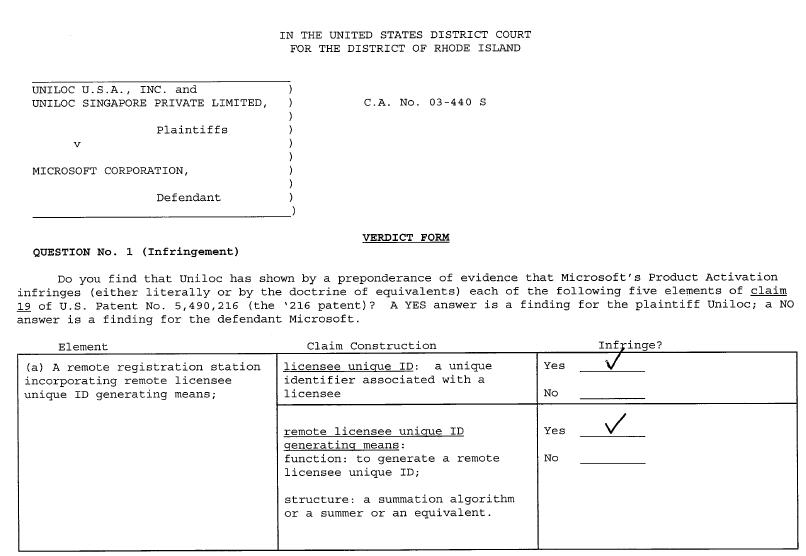Jury orders Microsoft to pay $388 million over anti-piracy patent

A Rhode Island jury has ordered Microsoft to pay $388 million in damages for infringing on an anti-piracy patent owned by Uniloc, a company that makes software that ensures licensing rights and security.
The jury decision almost ends a lawsuit that dates back to September 2003. The case file is full of sealed documents, various requests and motions. The jury basically ruled that Microsoft did infringe on Uniloc's patent, which was also deemed valid. Microsoft plans an appeal.
Here's a look at the jury decision (PDF) and the patent in question (summary):
Uniloc's patent covers:
A registration system allows digital data or software to run in a use mode on a platform if and only if an appropriate licensing procedure has been followed. Preferably, the system detects when part of the platform on which the digital data has been loaded has changed in part or in entirety, as compared with the platform parameters, when the software or digital data to be protected was last booted or run. The system relies on a portion of digital data or code which is integral to the digital data to be protected by the system. This integral portion is termed the code portion and may include an algorithm that generates a registration number unique to an intending licensee of the digital data based on information supplied by the licensee which characterizes the licensee. The algorithm in the code portion is duplicated at a remote location on a platform under the control of the licensor or its agents, and communication between the intending licensee and the licensor or its agent is required so that a matching registration number can be generated at the remote location for subsequent communication to the intending licensee as a permit to licensed operation of the digital data in a use mode. The code portion can be identical for all copies of the digital data. The algorithm provides a registration number which can be "unique" if the details provided by the intending licenses upon which the algorithm relies when executed upon the platform are themselves "unique".
Microsoft lost its argument that the patent was invalid for being obvious in view of already known technologies.
And the damages.
